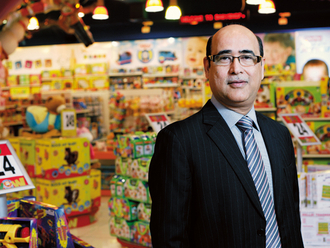
A chance encounter with a neighbour I barely know served an interesting insight into the ever-evolving mind of my five-year-old, when he asked if my children's school was still flooded. I looked at him in confusion. Flooding? As it turns out, the flooding was a fabrication - a little white lie, a fib, a tall tale - created by my daughter when the boy had asked her why she and her brother were off school one day (the real reason being that they were ill).
Don't get me wrong, I am just as keen as the next mother to instil wholesome family values but I laughed anyway. It tickled me that there was no reason for the fib. There was no gain to be had. It was just for fun; a more interesting version of events.
On the way home, I ribbed her about it in a jokey way. I didn't tell her off - I didn't see the need. After all, nobody was hurt in the process, right?
As adults, we know the difference between a little white lie ("Sorry, we've already got plans"), a lie for social etiquette ("I love your hair") and a dishonest lie ("Yes, the cash on the floor is mine"). We weigh up the cost of the lie against the cost of the truth and make the choice. Admittedly it's not a very nice light to see yourself in but if being totally honest, we would all probably admit to a bit of pro-social dishonesty now and again. But what about children?
Cinda Morgan, clinical director of the Wellspring Family and Child Development Centre in the US, says that children and adults lie the same. She says, "Children do not lie for unique reasons; an honest appraisal will reveal that adults lie for the same reasons children do. Looking at why a child lied can help the parent address the root of the problem."
Morgan lists four reasons for lying: fear of punishment; approval, or peer status, (for example, exaggeration); because they are so used to hearing the word ‘no' rather than having the chance to negotiate; and because it's easier than telling the truth, like when handing a child an ice cream, you ask them if they've washed their hands. They want the ice cream so saying ‘Yes', whether it's true or not, is the quickest way to get it.
According to Morgan, parents concerned about a child's lying should look to themselves. Do you lie to your children or in front of your children? She also suggests doing an experiment where you tell the truth for 24 hours to become aware of your own little white lies, praising your children when they tell the truth, and having a Truth Jar in the kitchen, which you put a sweet into every time anyone in the family tells a hard truth, to be shared when the jar is full. It sounds like a positive way of dealing with lying. But I still don't think my daughter's fib satisfies any of Morgan's categories. Further investigation is needed.
Celebrated Canadian psychologist Dr Patrick McGrath says that some children have such a vivid imagination that it gets confused with reality and that it shouldn't be quashed. He says, "The ability to distinguish reality from fantasy grows with time. You can help by labelling what you know to be a story as such. If your son says he went flying around the neighbourhood, you can tell him what a great story that is. Don't insist he agree with you that it was a story. Celebrate his excellent imagination."
Hear, hear, Dr McGrath. Not all lies are malicious and not all of them have a reason. Sometimes I think they are just for fun. And didn't Einstein say that imagination is more important than knowledge? Surely my daughter's creativity with reality shows intelligence, rather than a dishonest streak?
With thoughts of ‘child genius' in my mind, I subtly bring it up in conversation one day. I say to her, "I'm not angry. I think it's a really good story. I was just wondering why you said it." A long pause. Then, "I don't know why, but I was scared of his question." Oh. I ask, "Are you sure? Are you sure it's not because you thought it was a nice, funny story." She says, "No, Mummy. I didn't think it was funny. I just didn't want to answer his question. I really need to go and play. Can I go now?" And she scarpers off.
Visions of my five-year-old working out algorithms in her head vanish into dust and I'm left with the ugly truth.
Time to get me a big jar, I think.
For more columns in this series, visit www.dubaimumsclub.com








